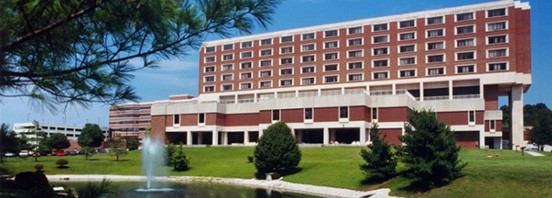“Infertility programs help women ‘beat the clock”
St. Louis Business Journal, February 27 – March 4, 2004
by Susan Kerth
At the Infertility Center of St. Louis at St. Luke’s Hospital, Dr. Sherman Silber and his partners are developing procedures that might have been considered science fiction only a few years ago.
“St. Louis may be viewed as a ‘sleepy’ town, and St. Luke’s as a nice community hospital, but people in the field of infertility treatment know we’re on the leading edge here,” Silber said. “We are a worldwide referral center, with 60 percent of our patients coming from outside of St. Louis.”
Silber’s latest innovation — antral follicle counting, or AFC — pinpoints the amount of time remaining on a woman’s “biological clock.” AFC, currently offered at only one other U.S. hospital, employs standard ultrasound technology to count the number of follicles a woman has. That number is directly proportionate to the number of eggs that remain in a woman’s ovaries.
“We can tell a 23-year-old on birth-control pills, or a 38-year-old, where she is on her biological clock — when she’ll become infertile and when she will go through menopause,” Silber said.
Another advanced procedure available at St. Luke’s is PGD, or preimplantation genetic diagnosis, for couples undergoing in vitro fertilization. PGD solves problems for couples who are carriers of serious genetic diseases.
“Instead of transferring the embryo back to the wife on day three, when it is made up of eight cells, we remove one cell without damaging the embryo and take the next two days to genetically analyze it,” Silber said. “The only embryos we will transfer to the patient are the ones we know are healthy.”
Ovarian and testicular transplantation, while more rare, are other leading edge procedures developed by Silber at St. Luke’s.
The ovarian procedure, first performed in 1996, has been used for women who must undergo massive chemotherapy or radiation treatment for cancer. “Most likely, (the cancer treatment) will make them menopausal, and they won’t have the chance to have their own children,” Silber said. He removes the woman’s ovary prior to treatment and freezes it in its entirety. “When she is cured, we can transplant the ovary back in,” he said.
Silber also has performed ovarian and testicular transplants involving organs donated by patients’ identical-twin siblings.
Silber pioneered the field of microsurgery and is considered to be a leading authority on such procedures as in vitro fertilization, vasectomy and tubal ligation reversal, and sperm retrieval, among others.
In 1975, Silber made headlines by performing the world’s first microsurgical vasectomy reversal. Silber presented a paper on the topic at a medical conference, and “the next day, the news was on the front page of the New York Times,” he said. “Every newspaper in the world carried the sensational story of vasectomies becoming reversible.”
Silber said his team at St. Luke’s has achieved the best results in the world for vasectomy reversal. “A remarkable 90 percent (of these cases) have a complete return of fertility,” Silber said.
Another “first” on Silber’s list of achievements was the country’s first microsurgical tubal ligation reversal in 1977. He was also responsible for the St. Louis area’s first donor-egg pregnancy and its first gestational surrogacy, in which a couple’s embryo is implanted into another woman’s uterus.
See also:
